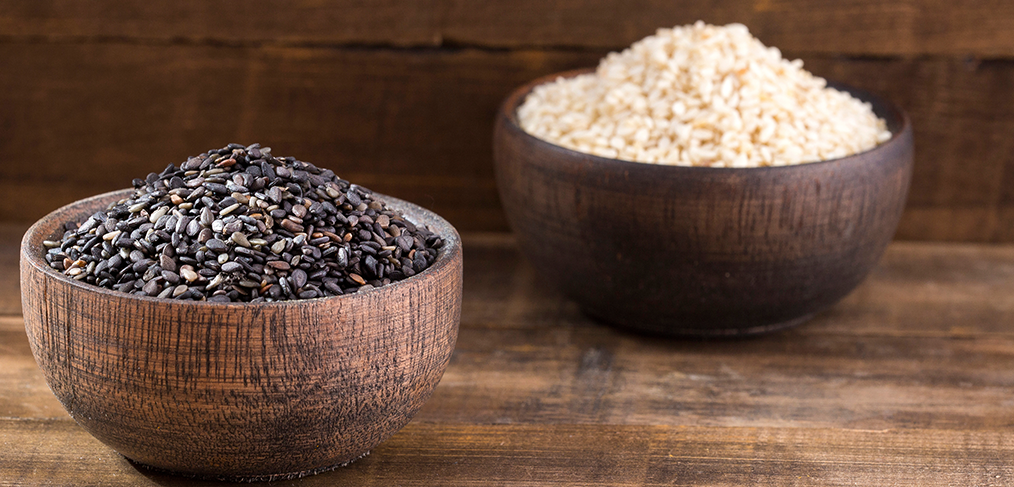The Global Sesame Oil Market reached a valuation of USD 4.61 Billion in 2022 and is poised for substantial growth, projecting a robust Compound Annual Growth Rate (CAGR) of 5.4% throughout the forecast period until 2028.
The surge in demand for Sesame oil is attributed to its versatility in Asian cuisine, aligning with the increasing health-consciousness among consumers. However, it is crucial to note that excessive consumption may lead to adverse health effects, including inflammation in the gut and colon.
Despite its numerous health benefits, there exists a lack of awareness among the general public, potentially hindering market expansion. Sesame oil’s utility extends beyond culinary applications, finding a place in cosmetics due to its antioxidant properties and being considered a healthier alternative to vegetable oil.
Factors such as the increasing recognition of the health advantages associated with sesame oil, including its high levels of monounsaturated and polyunsaturated fatty acids, antioxidants, and vitamins, contribute to the market’s upward trajectory. The growing demand for sesame oil in the food industry, owing to its versatility in various dishes, coupled with its application in the cosmetics and personal care industry, further fuels market growth.
Key Drivers Shaping the Market
- Health and Wellness Trends: The rising focus on health and wellness, driven by the nutritional composition of sesame oil, including heart-healthy monounsaturated and polyunsaturated fats and antioxidants like sesamol and sesamin, is a significant driver for market growth.
- Growing Demand in Asian Markets: Asian countries such as India, China, Japan, and South Korea, where sesame oil holds cultural and culinary significance, play a pivotal role in propelling the sesame oil market. It is an integral ingredient in traditional Asian dishes and is also used in Ayurvedic medicine.
- Expanding Application in the Food Industry: Sesame oil’s unique flavor and versatility make it a favored ingredient in the food industry, finding application in salad dressings, marinades, and sauces, thus enhancing the overall taste experience.
- Rising Vegan and Vegetarian Diets: The global shift towards vegan and vegetarian diets, emphasizing natural and unprocessed ingredients, aligns with sesame oil’s plant-based nature, making it a sought-after choice for those adopting such dietary preferences.
- Technological Advancements in Production: Advances in sesame oil extraction technologies, such as hydraulic or expeller presses, contribute to increased efficiency and quality, driving market growth to meet growing demand.
Key Challenges Facing the Market
- Vulnerability to Climate Change: Sesame cultivation faces challenges from the adverse effects of climate change, with factors like droughts, floods, and heatwaves affecting sesame crops, leading to lower yields and economic hardships for farmers.
- Price Volatility in the Global Market: Fluctuations in the prices of sesame seeds, influenced by weather conditions, global demand, and geopolitical events, pose a persistent challenge. These fluctuations impact both raw sesame seed prices and finished sesame oil products.
- Limited Sesame Oil Production Technology: The market grapples with limited technological advancements in production processes, particularly in small-scale producers in developing regions. Modernizing production processes is crucial for improving efficiency, quality, and sustainability.
Market Trends
- Growing Popularity of Asian Cuisines: The worldwide appeal of Asian cuisines is positively impacting the sesame oil market, with its essential role in dishes from various Asian countries contributing to its rising demand globally.
- Expanding Use in Food Products: Sesame oil is finding its way into an increasing number of food products, expanding beyond its traditional role as a cooking oil. Its distinctive flavor and nutritional benefits make it a favored ingredient in salad dressings, marinades, and sauces.
Segmental Insights
- In 2022, the food industry commands over 70% of the global sesame oil market, driven by the oil’s versatility in diverse dishes and growing awareness of its health benefits.
- Regional Insights: Asia Pacific holds the largest share in the sesame oil market, exceeding 50% of the global market in 2022. This is attributed to high consumption in countries like China, Japan, India, and Korea, where sesame oil is deeply ingrained in culinary practices.
Competitive Landscape
The competitive landscape of the Global Sesame Oil Market features prominent companies such as Olam International, Dipasa Group, Unicorn Ingredients Limited, Virdhara International, Tradin Organic Agriculture B.V., Kadoya Sesame Mills Inc., La Tourangelle, Inc., Manishankar Oils Private Limited, Tampico, and The Hain Celestial Group.
In conclusion, the Global Sesame Oil Market is poised for substantial growth, driven by health and wellness trends, the popularity of Asian cuisines, expanding applications in the food industry, and technological advancements in production. However, challenges such as vulnerability to climate change, price volatility, and limited production technology advancements pose considerations for market players.
For more information on this report, please visit https://www.researchandmarkets.com/r/ttdb4x.


